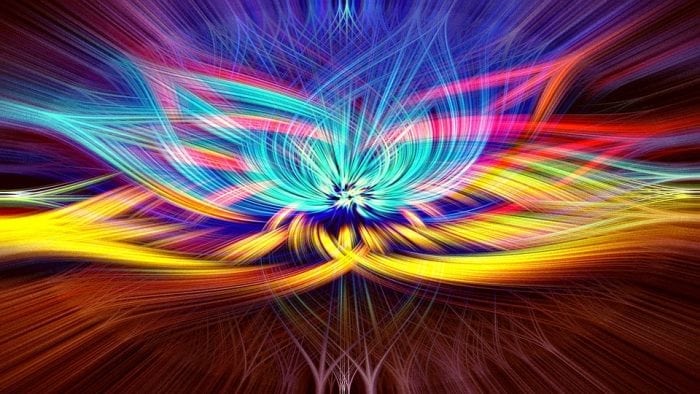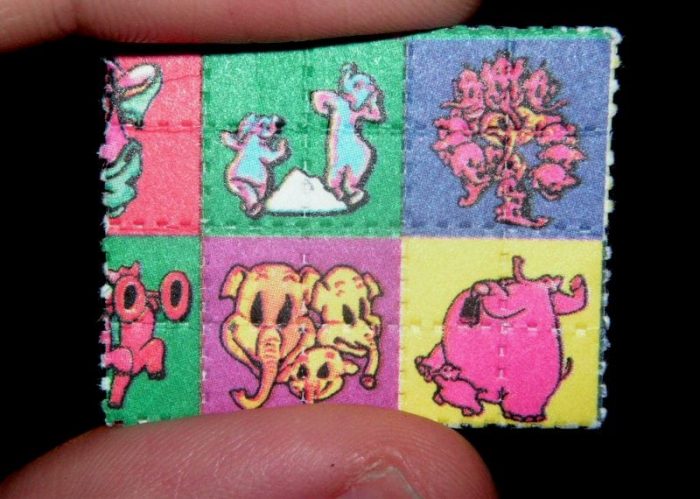
Self-prescribed microdosing of LSD has become a growing trend for both dealing with mental health states like depression, and in trying to boost creativity and productivity in areas like software development in Silicon Valley. Individuals who have tried the LSD microdosing approach report various results, but so far, relatively little actual scientific research has been done to study the effects of microdosing LSD on the brain, on moods, and on mental focus and ability. That’s all about to change. Beginning this September, a self-blinding microdosing study of LSD and how it affects the mental health and mental function of participants will be conducted by The Beckley Foundation and Imperial College London.
What is LSD?
Lysergic acid diethylamide (LSD) is often just called ‘acid’. First synthesized from lysergic acid from the ergot fungus by Albert Hofmann in 1938, LSD is a psychedelic drug that causes hallucinations and other states of altered sensations and perceptions.
- Psychadelic: a psychedelic drug is a drug that alters the mental state of those who take it by engaging with brain receptors for serotonin. This causes changes in thoughts as well as in the visual and auditory centers of the brain.

LSD structure. Image source: Ju via Wikipedia, licensed under CC0.
How Will the Microdosing Study Work?
The hypothesis of the study is that taking microdoses of LSD will lead to increases of feelings of well-being and mental capacities such as creativity and productivity. The tendency of microdoses of LSD to increase or induce anxiety will also be examined, as well as any other possible negative effects.
Psychedelic drugs like LSD are known to be agonists of serotonin receptors, meaning that they are able to mimic serotonin and bind to the neurotransmitter receptor for serotonin and cause the same reaction. A common type of anti-depressant is the SSRI or Selective Serotonin Reuptake Inhibitor. The function of the SSRI is to increase the amount of serotonin available in the brain by blocking the ability of the body to reabsorb the serotonin. This, in turn, allows the serotonin to bind to its receptor and induce feelings of happiness and well-being. Similarly, it is thought that, as a serotonin agonist, psychedelic drugs like LSD could stimulate feelings of happiness and well-being by acting more directly on the serotonin receptor as an agonist.
Since LSD is an illegal drug, the researchers conducting the study will not be providing any psychedelic drugs to participants. Rather, participants will provide their own psychedelic drugs, and take the drug or a placebo on a regular schedule. The unique feature of this study is the procedure to ensure participants are ‘blind’ to whether or not they are taking the drug or the placebo. Called ‘self-blinding’, participants will prepare gel capsules that contain either a microdose of LSD or nothing and then place the capsules into envelopes that contain QR codes that identify the capsule as having contained the drug or not. The envelopes are randomly assigned to be taken on a set schedule over the four weeks of the study.
Each day, to measure the effects of microdosing on mental state and function, participants will take questionnaires and play games provided online by the researchers. While the study cannot be as controlled as a clinical trial (in terms of dosing quantities or dosing schedule), it is hoped that the numbers of participants will be significantly large enough to provide more statistically significant data.
Should the microdosing of psychedelics show benefits that are statistically significant from the placebo, then the results from the study will likely be used to stimulate further research at academic or medical institutes. More conventional clinical studies may then result and provide more controlled data.
What is Microdosing?
Microdosing is taking very small amounts of a drug on a regular schedule. Using such a small, or ‘sub-perceptual’ amount of the drug limits or eliminates any hallucinatory effects. Anecdotal evidence suggests that, by microdosing LSD, the mental focus, creativity, and energy of the individual is increased, and they are left with a sense of well-being.

LSD is widely known as a psychedelic drug. Artists continue to try to capture their psychedelic trips and hallucinations into artworks. Credit: Wikipedia by Psychonaught licensed under CC0
In terms of boosting creativity or mood, the idea behind microdosing is that a small enough portion of the drug is taken so as to enhance the mental state without getting high and hallucinating fully. The theory is that if the individual is not high or hallucinating, their ability to work and function reliably is not impacted or impaired in any way.
In order to reduce deviations from reality and experience only the positive effects of LSD on mood and creativity, a microdose is taken. A microdose of LSD equates to between six and twenty micrograms, where a normal full dose that causes hallucinations is approximately one hundred micrograms. Microdoses are typically taken on a regular schedule, generally every three to four days.
How is LSD Reported to Affect the Brain?
The majority of scientific research done on how LSD affects the brain has been conducted using full doses of the drug, rather than microdoses. Previously, one study that was performed to study the effects of LSD on the brain involved participants taking either a dose of LSD or a placebo and then having images of their brains taken. Results showed a greater unity of the brain in some areas and reduced connectivity in other areas. Different interpretations of the data include an explanation of how LSD inspires a sense of ‘oneness’ with nature or changing restricted thinking patterns that have been developed in the brain.
There have been reports made by individuals who have tried self-prescribed microdosing on LSD. Reports range from increased focus and creativity to an ability to escape the negative thought patterns of depression. Negative effects have been reported as well, such as increased feelings of anxiety and being overwhelmed. Other psychedelic drugs, such as psilocybin (found in magic mushrooms) and mescaline (found in peyote cacti) have been used, like LSD, to attempt to treat mental health states like depression. These drugs have also been used to induce states of mental clarity and well-being.
It seems that individuals are looking to stimulate their brains in different ways, and to find a new mental perspective. Apparently, with the aid of small doses of psychedelic drugs, altered mental states that free thoughts are possible. However, more research is clearly needed to ensure that the positive effects felt by those who have used microdosing are real and do not cause long-term repercussions.









